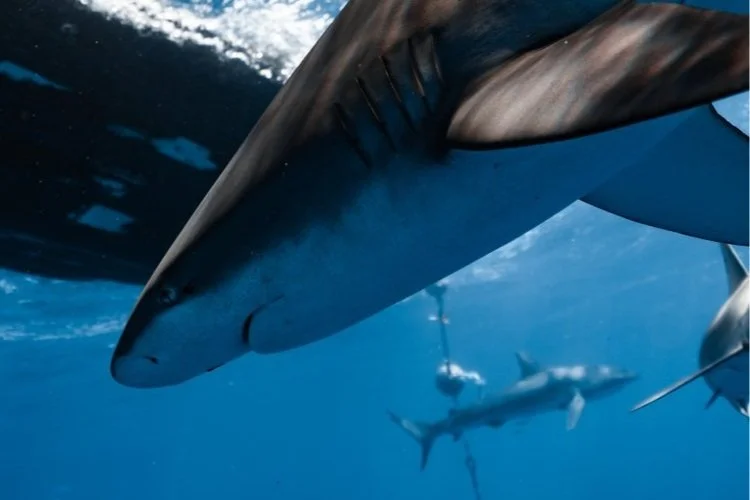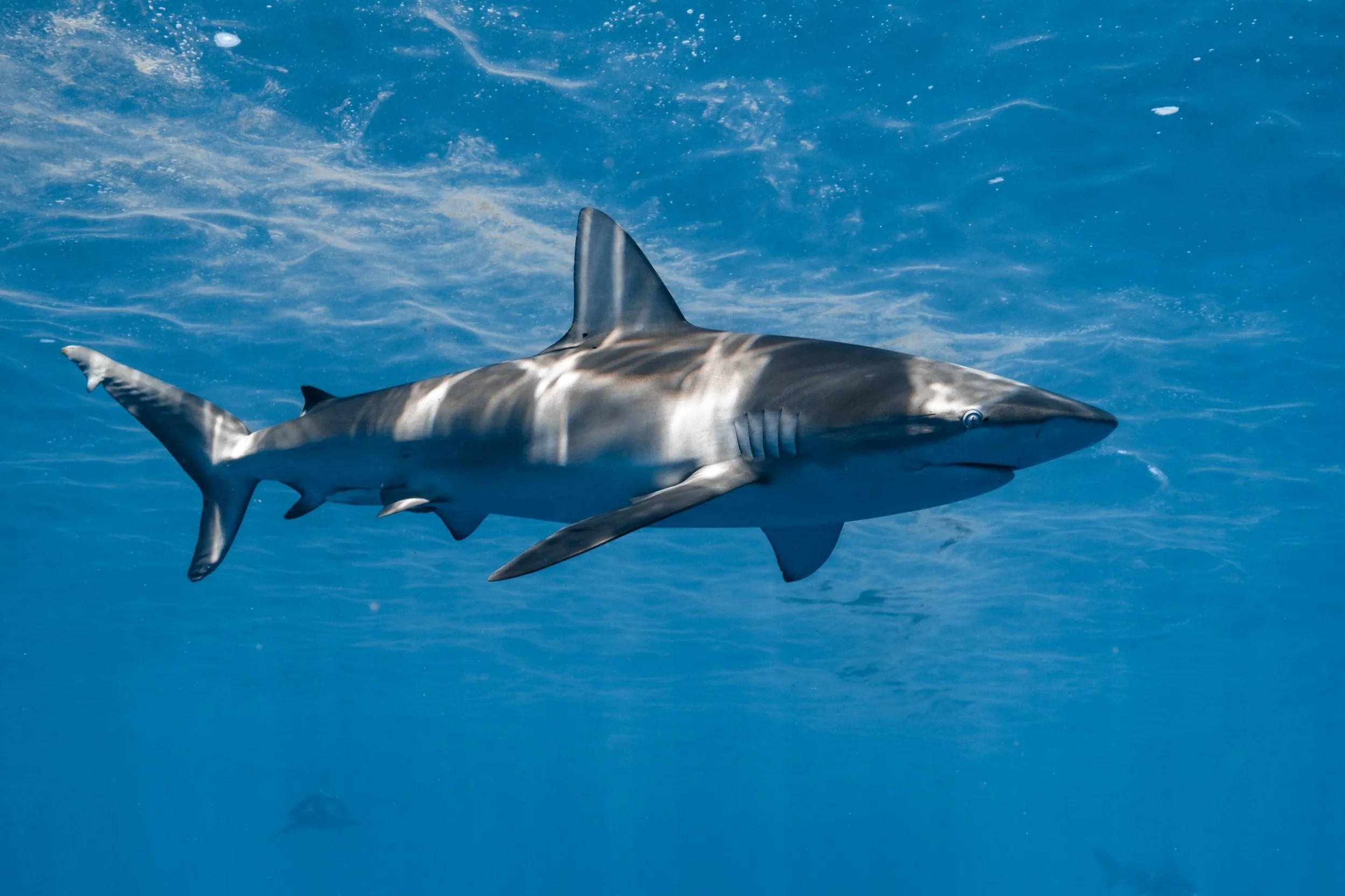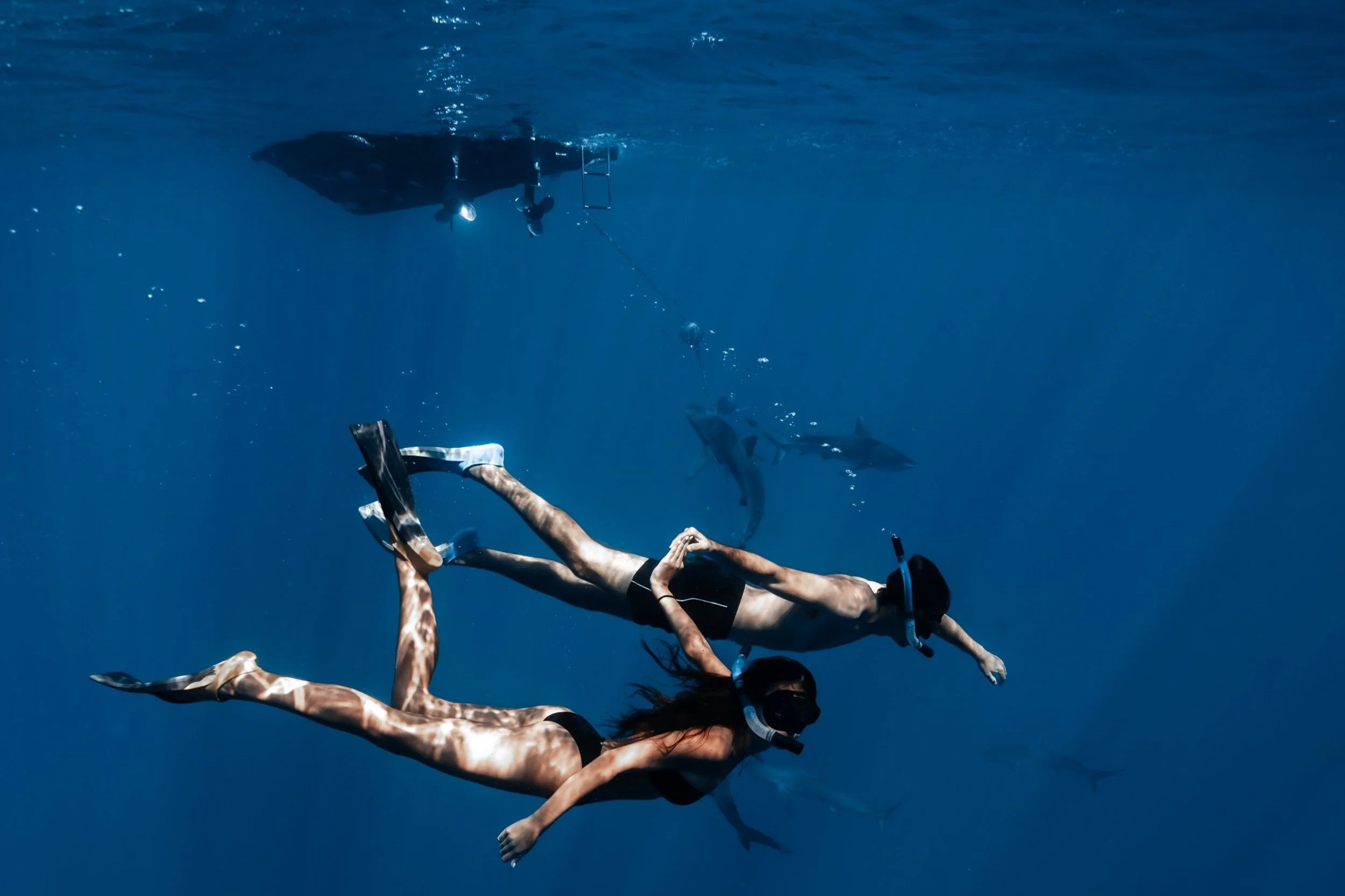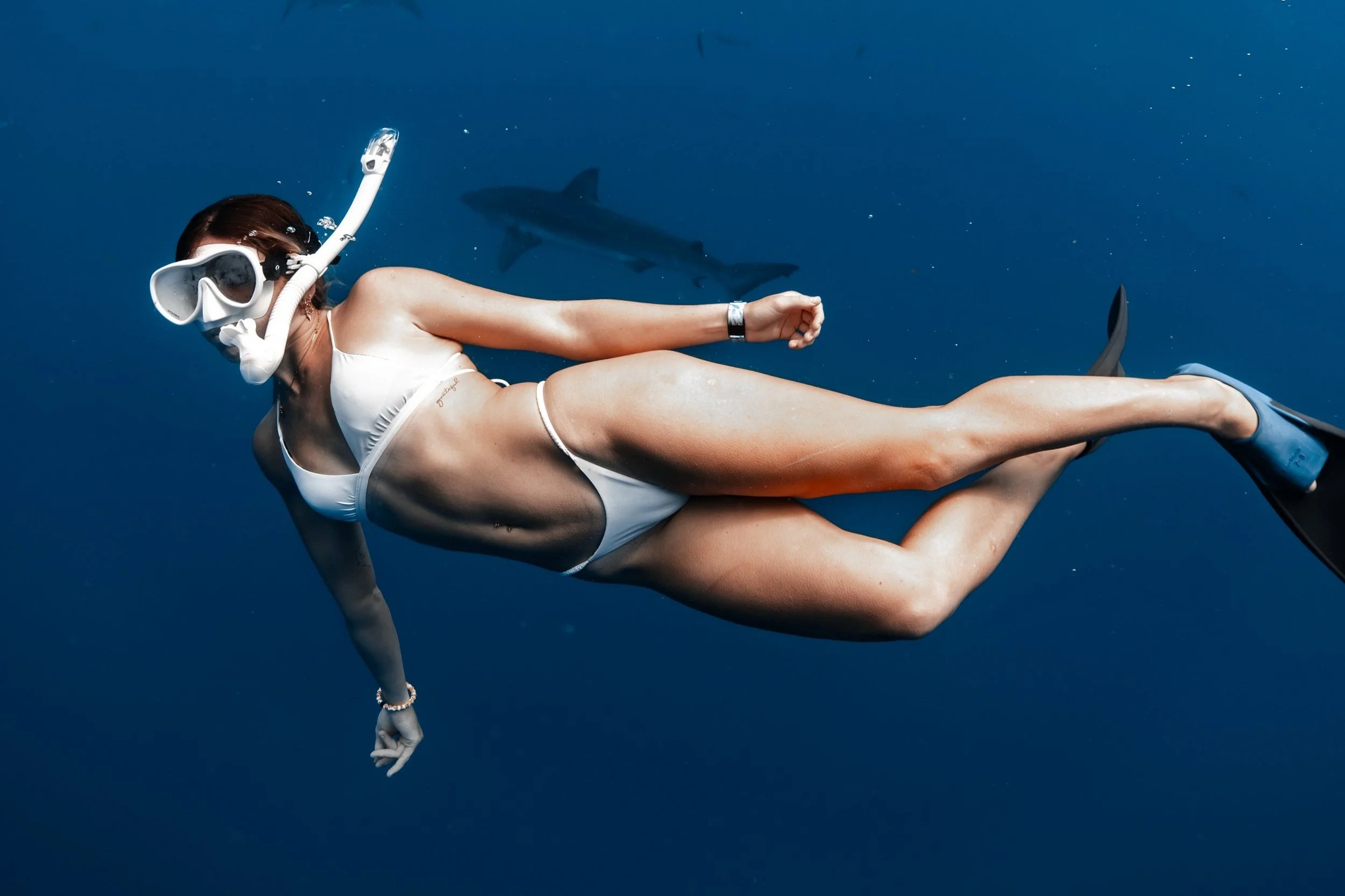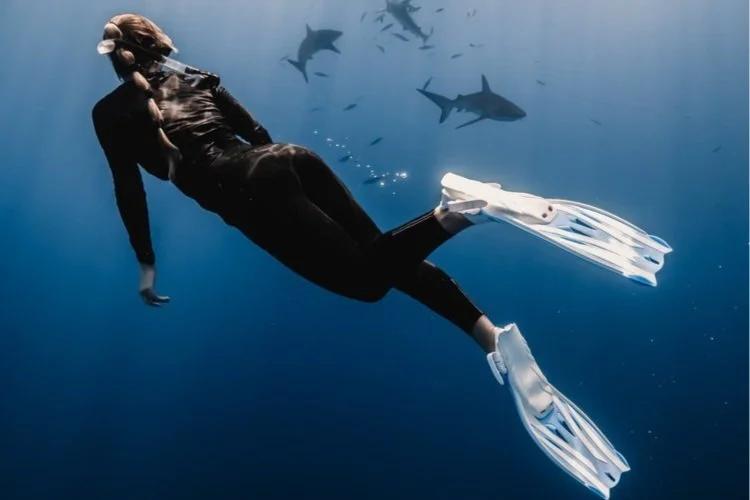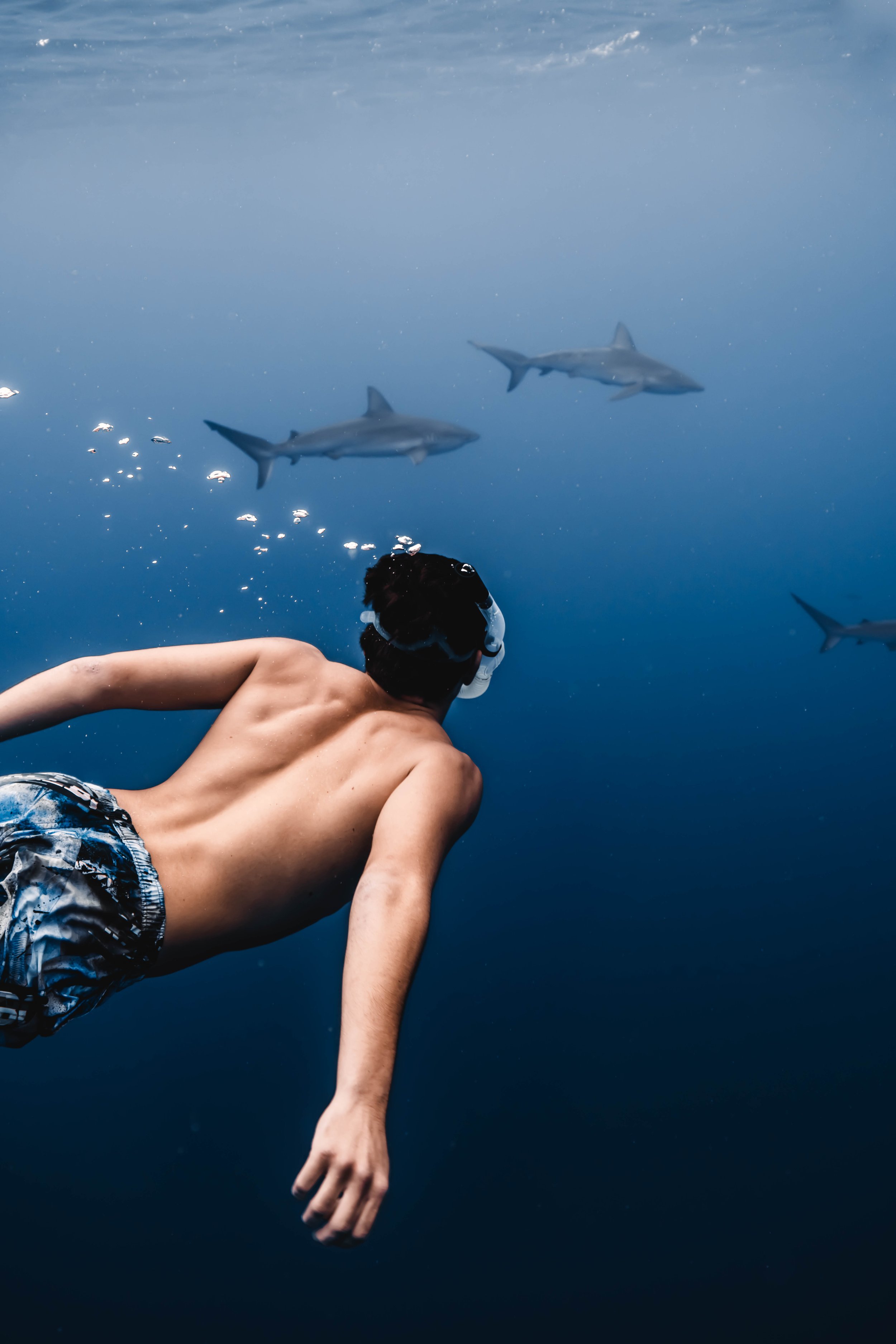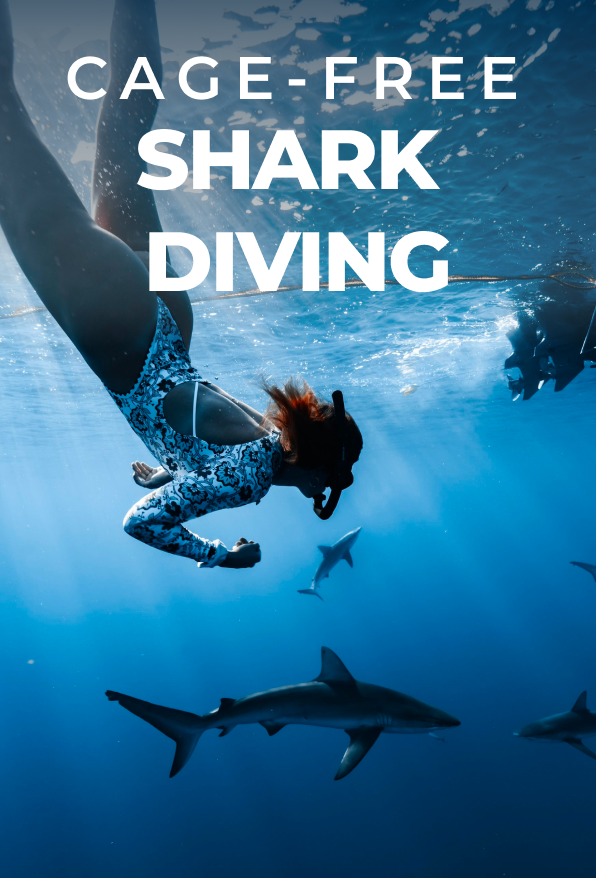Is Shark Diving in Hawaii Safe? Myths, Risks & Realities Explained
Many travelers wonder: is shark diving in Hawaii safe? One of the most damaging myths is the idea that sharks are inherently dangerous to humans. In reality, shark behavior is highly misunderstood, and the majority of species pose no threat to people.
This article explores what shark diving is really like, what risks do or don’t exist, and how to prepare for a safe and meaningful experience in the water. This guide is designed for curious travelers, first-timers, or anyone with safety concerns about getting in the water with sharks.
Shark diving in Hawaii is safe when done with trained professionals. Most shark species you'll see are not aggressive. There have been no unprovoked attacks during commercial tours. Chumming is illegal in Hawaii, so choose operators who follow the law and prioritize safety. You can dive safely even while menstruating or with minor cuts. Just stay calm, avoid sudden movements, and follow your guide’s instructions. Deep Blue Eco Tours has kept a 100% safety record since 2010 and supports ocean conservation with every tour.
Table of contents
Are Sharks Aggressive Toward Divers?
It’s one of the most asked questions about shark diving in Hawaii. The reality? The species you’ll encounter—like Galapagos sharks and Sandbar sharks—are naturally curious and generally not aggressive toward humans. These sharks are accustomed to seeing humans in the water and rarely display threatening behavior. To learn more about the most common shark species you'll encounter and which are considered safe to swim with, check out our guide: Sharks You Can Swim With in Hawaii.
Contrary to popular belief, sharks are not mindless predators. Most incidents involving sharks occur in murky water or involve mistaken identity (like surfers or spear fishers). Shark dive operators carefully choose locations and times to avoid these scenarios entirely.
Another persistent myth is that sharks prefer human flesh. As explained in our myth-busting article, sharks are opportunistic eaters, not manhunters, and there's no evidence that they deliberately seek out humans as prey. The fear of sharks has been largely shaped by fiction and media, not science.
For a deeper dive into common shark myths and misconceptions, check out our post: Shark Myths Debunked, explore how media has shaped public fear in How the Movie Jaws Shaped Our Fear of Sharks, and learn about the best locations in Where to Swim with Sharks in Oahu and what to expect in Swimming with Sharks in Hawaii.
Has There Ever Been a Shark Attack During a Shark Dive?
So to be clear: no unprovoked shark attacks have occurred during commercial shark diving tours in Hawaii. According to the Hawaii Department of Land and Natural Resources (DLNR), past incidents involving sharks and tour participants have been classified as provoked bites, typically linked to the use of chum or specific human actions.
The takeaway: shark diving in Hawaii remains safe when conducted under professional guidance and with responsible practices.
Galapagos Shark – Cage-Free Shark Diving Tour in Oahu, Hawaii with Deep Blue Eco Tours
Is it Safe to Dive with Sharks When You Have a Cut or Are on Your Period?
This is a common concern, but the truth is: having a small cut or being on your period does not automatically increase your risk when diving with sharks.
Scientific studies and real-world experience from thousands of shark dives suggest that sharks are not attracted to human blood in the way many people imagine. Unlike the dramatic scenes shown in movies, sharks don't go into a frenzy at the presence of a few drops of blood. Their interest is primarily in the scent and vibration patterns of injured or distressed prey animals like fish.
That said, there are still a few best practices:
If you're on your period and feel comfortable, you can safely participate, many female guides and divers do this regularly with no issues.
Always inform your guide if you have concerns so they can provide personalized advice based on the dive conditions.
The key is to follow guidance, stay calm in the water, and trust your trained dive leaders.
What Safety Measures Do Shark Tour Operators Follow?
Experienced Crew & Safety Divers: Operators employ trained and experienced staff who are knowledgeable about shark behavior and ocean conditions.
Comprehensive Briefings: Before entering the water, guests receive detailed safety instructions, including procedures for entering and exiting water, guidelines for interacting with sharks, and emergency protocols.
Respecting Marine Life: Guests are instructed to avoid touching or provoking sharks and to maintain a respectful distance.
Avoiding Chumming: Hawaii law prohibits the use of chum to attract sharks. Reputable operators, including Deep Blue Eco Tours, strictly avoid this practice to reduce risk and preserve natural behavior.
Expert Guidance: Deep Blue Eco Tours is led by professionals with formal training in biology and environmental sciences. The team offers in-depth insight into shark behavior and ensures each interaction is both safe and educational.
Conservation & Sustainability: Deep Blue Eco Tours actively integrates conservation into its operations, limiting impact through reef-safe practices, promoting plastic-free policies, and contributing to shark research and marine protection programs.
Limited Group Sizes: Some operators Like Deep Blue Eco Tours limit group sizes for a safer and more personalized experience. Deep Blue has a maximum group size of 6.
What do I need to know before diving with sharks in Hawaii?
Before you choose a shark diving tour, make sure the company follows responsible and professional safety practices:
Make sure they do not use chum or attractants to lure sharks, as this can alter natural shark behavior.
Make sure there is a trained safety diver onboard to monitor conditions and assist in case of emergencies, and in the water with you at all times, monitoring wildlife behavior and conditions.
Make sure they carry a complete first aid kit and have clear emergency response protocols in place.
Make sure they do thorough briefing before getting in the water.
Make sure the company is eco-friendly and conservation-minded.
In the water, there are also a few tips that help keep interactions calm and safe:
Maintain awareness of your surroundings including the wildlife, your guide, and the boat.
Avoid splashing or panicked movements—this can startle sharks or attract unwanted attention.
Stay close to your guide and follow their instructions at all times.
Keep your movements slow and steady to appear non-threatening.
These safety measures and behavioral tips reflect a company’s professionalism and your own role in contributing to a respectful, safe shark diving experience.
Is Cage Diving Safer Than Cage-Free Diving?
Both are safe when done with experienced guides. Cage diving offers extra reassurance, especially for nervous first-timers. Cage-free dives provide a more immersive experience for confident swimmers.
Final Word: Shark Diving Is Safer Than You Think
The idea of swimming with sharks sounds intimidating, but it’s far safer than many think. When done responsibly with a licensed operator, shark diving in Hawaii is a controlled, educational experience with minimal risk.
If you’re ready to challenge myths and step into the open ocean, this may become the highlight of your trip.
Deep Blue Eco Tours has proudly maintained a 100% safety record on all its tours – proof of the company’s professionalism, preparedness, and commitment to every guest’s well-being. The team has conducted over 3,000 shark diving tours with 0 incidents.
Our mission is to educate, protect, and inspire. We promote respectful wildlife interactions that foster a deeper connection to the ocean and empower visitors to become advocates for marine conservation.
By choosing Deep Blue Eco Tours, you directly support ongoing conservation efforts. A portion of each tour goes toward programs focused on shark research, ocean literacy for local youth, and community cleanups across Oahu’s North Shore. Your adventure helps fund ethical ecotourism and supports a healthier future for Hawaii’s marine ecosystems.
Book your shark dive with us today and experience Hawaii’s marine life with conservation at heart.


